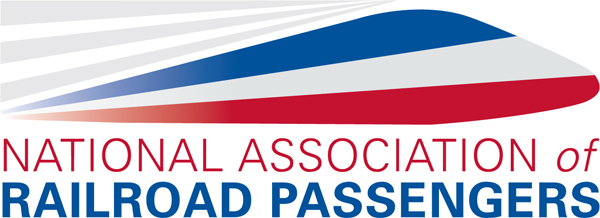Rail Passengers Petition Supreme Court to Review Case Involving On-Time Performance Standards
November 9, 2017
For Immediate Release (#17-16)
Contact: Xenophon Strategies - (202) 289-4001
Lower Court Decision Frustrates Congress’ Goal To Reduce Train Delays That Harm Millions of Passengers
Washington D.C. - The Rail Passengers Association, legally known as the National Association of Railroad Passengers--or NARP, petitioned the Supreme Court to review a case that would pave the way for enforcement of on-time performance standards for passenger rail. Without these defined standards, freight is systematically prioritized over passenger trains, leading to chronic delays for long distance riders. The petition, filed today by the Environmental Law & Policy Center (ELPC) on behalf of NARP and other passenger advocacy organizations, seeks to overturn a lower court’s decision that flies in the face of the “Passenger Rail Investment and Improvement Act” (PRIIA), a law passed by Congress in 2008 that included provisions to make sure trains run on time.
"When the DC Circuit nullified Section 207 last year, it took away FRA’s power to develop on-time performance standards. Then the Eighth Circuit this summer interpreted Section 213 in a way that eviscerated the power of the Surface Transportation Board, which was the only agency left to carry out Congress’ assignment to improve on-time performance. The two courts’ moves together have left no agency remaining to fulfill Congress’ statutory mandate in PRIIA to enforce those standards,” said Jim Mathews, President of the Rail Passengers Association. “That gap thwarts Congress’ core intent in PRIIA, and leaves passengers without any recourse.”
ELPC’s “petition for a writ of certiorari” asks the United States Supreme Court to review the July 2017 judgment by an Eighth Circuit court panel. In that finding, the Circuit court rejected the Surface Transportation Board’s (STB) interpretation of Section 213 of PRIIA which created two separate “triggers,” each of which require the STB to investigate sub-standard on-time performance. Even though Congress plainly gave STB the authority to regulate these specific aspects of on-time performance, the freight railroads objected and sought judicial review. The Circuit court agreed. Oddly, in 2015, the Association of American Railroads--the trade group for freight rail carriers in North America--asked the STB to create the regulation that defined on-time performance in the first place. It was only when STB sided with passengers that the group challenged STB’s authority to regulate the issue.
“This fight has gone on long enough,” said Mathews. “For decades, rail passengers have been left waiting for freight trains to clear the rails. Even acts of Congress haven’t been able to budge them out of the way. We need the courts to now recognize and allow Congress’ goal to be carried out. The law creating Amtrak in the early 1970s codified a deal these railroads made with the American taxpayer: we’ll relieve you of your common-carrier responsibility for passenger service, and in exchange you’ll ensure those passenger trains get where they need to go on time. It has been a battle ever since.”
The ELPC has been a strong partner in this fight, and the Rail Passengers Association greatly appreciates their continued support as we pursue passengers’ rights to efficient travel.
To learn more about Rail Passengers and its mission and advocacy work, visit www.railpassengers.org, or Facebook and Twitter @railpassengers. If you’re just learning about Rail Passengers and would like to become a member visit the member benefits page at www.railpassengers.org/membership.
About the Rail Passengers Association
The Rail Passengers Association is the oldest and largest national organization speaking for the nearly 40 million users of passenger trains and rail transit. We have worked since 1967 to expand the quality and quantity of passenger rail in the U.S. Our mission is to work towards a modern, customer-focused national passenger train network that provides a travel choice Americans want. Our work is supported by more than 28,000 individual members nationwide.
